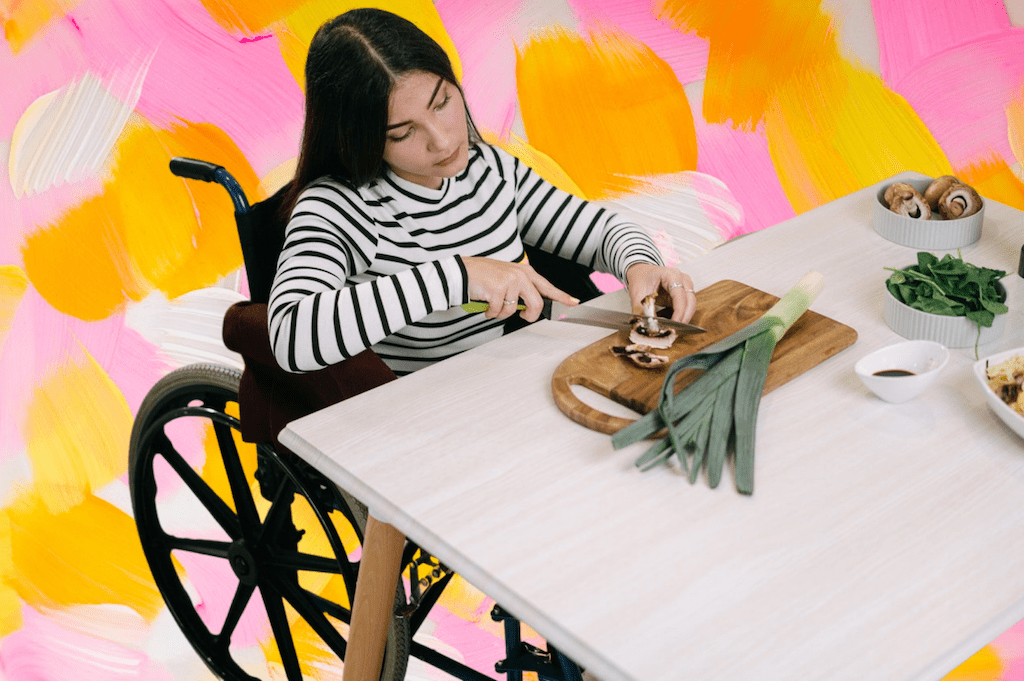With increasing concern around the presence of chemicals and additives in our everyday ingredients, interest in organic food is rising in tandem.
In fact, the number of Brits pledging to lead a more ‘organic lifestyle’ has been steadily growing in recent years, but what exactly does this term mean?
Many people tend to associate organic living only with eating organic food. This is a diet only made up of ingredients that haven’t been grown using manmade fertilisers and pesticides. In terms of meat and fish, nothing is allowed on the plate that’s been farmed or raised using growth regulators or feed additives.
Whilst diet is an integral part of organic living, the lifestyle is actually more all-encompassing than that. To put it simply, an organic lifestyle means living through more natural means. From wearing non-synthetic, locally made clothes and using all-natural cleaning and cosmetic products, all the way to reducing energy consumption and travelling less, an organic lifestyle can take many forms far beyond the chemical-free.
If you’re planning to switch to an organic, chemical free, green lifestyle, this simple guide will help you get a head start.
START YOUR OWN GARDEN
Those living an organic lifestyle know, first and foremost, that it’s a constant quest for knowledge. Chemical names for everyday ingredients, technical labelling and certification, even organic farming methods…you’ll quickly become well versed in a whole new vernacular.
But once you’re clued up and conversant, one of the best ways to develop a deeper understanding of what it is to be ‘green’ is to start your own veg patch, allotment or urban growing garden. Apart from the nutrition that organic food offers, gardening is a surprisingly good workout as it requires a lot of moving, walking, and carrying plants and gardening tools.
Gardening also reduces the amount of waste your household produces since it will limit your use of grocery bags – you can just pick the veggies and fruits straight from your garden when they’re in season!
All that being said, it’s unlikely that having your own vegetable patch will see you become self-sufficient. A domestic allotment rarely produces enough food to regularly feed a family. It will, however, keep you educated about the natural cycle of the growing seasons, which is massively useful for those looking to live a more organic lifestyle.
CONSUME ORGANIC FOOD
The cleanest, clearest route to living a more organic lifestyle, as we already mentioned, is consuming organic food. Organic food simply refers to any food item produced without the use of any ingredient or additive that’s artificial or genetically modified, including hormones and antibiotics. It should be noted that when it comes to farming and cultivation, organic produce may still be grown with fertilisers and pesticides as long as those are organic, too.
If you’re switching to an organic diet, it’s easier these days because there are now more manufacturers of organic food and drinks than ever before. In general, organic foods are naturally healthier than traditionally processed foods. And because they’re naturally grown, organic crops are higher in antioxidants and vitamins, and have lower nitrate levels than non-organic crops.
Products in the UK can only be labelled as ‘organic’ if at least 95% of the product’s farmed ingredients are organic. Additionally, by law, growers, processors and importers have to be registered with an approved body, of which there are 7 in the UK; the Organic Farmers and Growers CIC, Organic Food Federation, Soil Association Certification Ltd, Biodynamic Association Certification, Quality Welsh Food Certification Ltd, and OF&G (Scotland) Ltd.
Read: 5 food shopping hacks to help on your journey to zero waste

USE CHEMICAL FREE CLEANING PRODUCTS
Whether you’re a meticulous cleaner or someone who only gets the hoover out when they can’t see their carpet for dust, you’ll likely already know that the vast majority of cleaning products on the market today contain chemicals.
It shouldn’t have to be this way; eco-friendly organic cleaners made with natural ingredients are safer and less toxic to use. However, it’s also commonly thought that organic cleaners aren’t as effective as traditional cleaners that use strong chemicals. The truth is most natural and organic cleaners, especially disinfectants, can be just as effective as traditional cleaners. Do be aware that it’s important to clean surfaces with soap and water first before using any organic disinfectant.
Read: 10 eco-cleaning tips for the big spring clean
SWITCH TO ORGANIC COSMETICS & PERSONAL CARE ITEMS
This just in; your personal care and cosmetics products tend to be pretty – shall we say – chemically. Switching to organic items will not only help the environment, but it’ll also help you look more radiant, too!
Fortunately, you can increasingly find sustainable personal care products that are organic, non-toxic, and cruelty-free on the market. What’s more, beauty products that purport to be sustainable have an all-encompassing approach that strives for waste reduction not only in the product, but in the production methods and packaging, too.
Considering most makeup packaging isn’t even recyclable (the average moisturiser tub takes around 1,000 years to decompose), this is something you should definitely be prioritising.
Moreover, did you know that an estimated 268 million toothbrushes get sent to landfill each year? It’s clear we need to switch up our oral care routines, too. Consider toothpaste tablets which are an alternative to conventional, plastic-packaged toothpaste. Oh, and don’t forget your bamboo toothbrush which has a smaller ecological footprint than plastic ones.
If your local cosmetics shop has refill stations, then take your own containers and help eliminate your own single-plastic use altogether. And if you’re buying personal care products from the high street, you can refer to Greenpeace’s plastic use by supermarket rankings to keep informed and make smarter consumer choices.
Read: 10 eco-friendly alternatives for everyday disposable items

FIND ALTERNATIVE METHODS OF TRANSPORTATION
The UK Government has brought forward plans to outlaw diesel and electric cars to 2030. If you’re due a new car next year, why not get ahead of the game and go hybrid or electric?
They are more affordable than you might think with finance options available and generally have much lower running costs than their diesel and petrol counterparts. If you’re keen to learn more, check out our article on answering some of the common questions about hybrid and electric cars.
Alternatively, you could ditch the motor altogether and adapt to a life on two wheels or on foot. Though it’s not ‘organic’ in its traditional definition, it certainly ticks all the boxes of an environmentally kinder, greener lifestyle. And that’s why you’re here, isn’t it?





